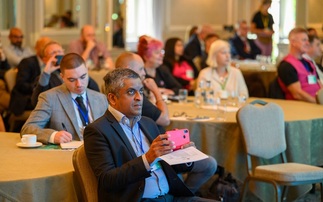Computing talks to Cypher Coders CEO Elizabeth Tweedale about founding new tech businesses and diversity in the IT industry
Computing: Was your experience founding a tech company affected by being a woman? Elizabeth Tweedale: I've never launched a company as a man, so I don't know! I don't think of it that way. Every...
To continue reading this article...
Join Computing
- Unlimited access to real-time news, analysis and opinion from the technology industry
- Receive important and breaking news in our daily newsletter
- Be the first to hear about our events and awards programmes
- Join live member only interviews with IT leaders at the ‘IT Lounge’; your chance to ask your burning tech questions and have them answered
- Access to the Computing Delta hub providing market intelligence and research
- Receive our members-only newsletter with exclusive opinion pieces from senior IT Leaders




















